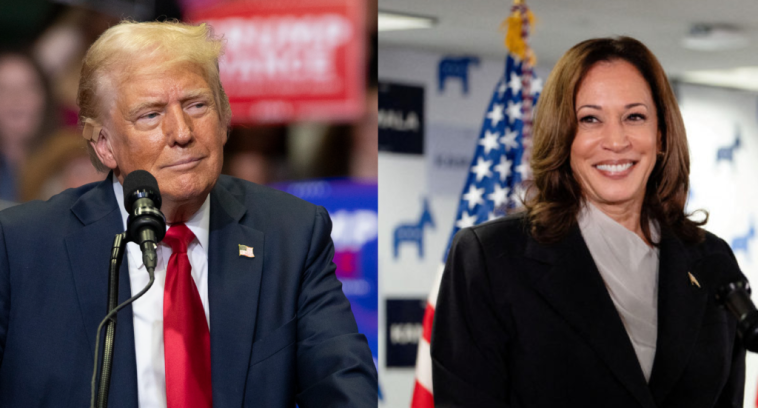In a recent gathering in Pittsburgh, former President Barack Obama expressed his concern about the lack of support Kamala Harris is receiving from certain demographics. His viewpoint revolved around the assumption that this was due to an underlying reluctance to see a female president. While his observations added another layer to the conversation, it’s important to recall that these factors have not always been decisive. We remember how Hillary Clinton’s loss was not due to her being a woman, but rather, due to specific choices and strategies pursued during her campaign.
Clinton’s campaign strategy of focusing less on certain key states like Wisconsin and Michigan seemed to have missed the mark. Claiming that misogyny was at play didn’t resonate with the majority, who viewed Clinton’s campaign approach as a more significant factor. Consequently, her identity as a woman was not the pivotal point in her loss; the strategic decisions made were.
When I approached James Carville regarding whether Americans might still be hesitant to vote for a woman, particularly one of color, as Harris is, his perspective was refreshingly pragmatic: ‘What we should worry about isn’t going to change until Election Day,’ he stated. ‘The focus must be on being proactive and assertive, rather than pondering over uncontrollable factors.’
Carville underscored the urgency of the situation, expressing his fear that the current campaign pace might not be enough. ‘They need to seize every opportunity that comes their way,’ he urged. He lamented on the wavering potential of the campaign, suggesting they needed to strengthen their offensive. He pointed out the campaign’s performance, in an unmistakably sharp remark, stating it ‘is still in Wilmington.’
Carville also highlighted some of the weak points of the opposition. For instance, he pointed out the absurdity of JD Vance claiming that Trump is the father of Obamacare when President Trump has openly attempted to dismantle Obamacare. He further recommended strategies for gaining a competitive edge, like exposing potential right-wing judiciary appointments by Trump and questioning if America is ready for a more radical Supreme Court.
He indicated the potential detrimental effects of tariffs and linked them directly to the threat to jobs. He proposed that the planned Trump tax cuts for the wealthy should instead be used to support younger citizens in affording their first homes. It was suggested that these issues could be critical for campaigning, particularly among black male demographics, given the potential impact on their futures.
Democratic consultants echoed Carville’s sentiment, implying that Harris needs to show more fire in her campaign. While the centerpiece of her campaign message revolves around her being an alternative to Donald Trump, they suggested she also needs to establish her unique proposition more climbingly. They shared the view that her current stance isn’t enough to win over voters.
Navigating politics in the clearly Democratic-leaning state of California has not prepared Harris for the challenge she currently faces. The strategists believe she should attempt to concede and rectify the flaws in the border policies rather than get entangled in defending them.
Harris has been meticulous and consistent in her approach, but her delivery often seems rehearsed and overly cautious, leaving voters questioning her authenticity. The guarded nature of her public persona leaves a sense of her holding back, even though her hard work and attention to detail are clear.
Harris targets a critical voter demographic – white women who stand on the fence when it comes to Trump. One significant advantage of her candidacy pertains to the threat that Trump and Vance, openly pose to abortion rights. As a woman, she can effectively express these concerns, appealing directly to a broadly worried demographic.
Distinguishing her vision for a more compassionate America, Harris has been able to share powerful stories from her personal life, like how her experience of caring for her dying mother led to her idea of getting Medicare to cover some in-home care. This heartfelt proposal is a far cry from Trump’s vision.
Emphasizing the veracity of statements made during this race, she pointed out the misleading claims Trump made regarding the federal response to Hurricanes Helene and Milton, which have had tangible consequences for those affected. Trump’s claims that the government was not assisting people in certain areas could prevent them from seeking much-needed aid.
Perhaps the most absurd claim from President Trump is his self-proclaimed role as the ‘Protector of Women.’ This claim juxtaposed against the challenges Harris faces in outshining Trump brings to light a stark reality in this political contest.
Carville highlights a pressing need for less pondering and more action, given the urgency and stakes of the situation. The momentum for change needs to be built faster by Harris for the sake of the campaign.
Drawing a conclusion on the overall state of the campaign, Carville presses for a shift in strategy and more substantial actions on Harris’s part. This urgency stems from Harris’s fundamental mission to campaign effectively, win voters’ hearts and ensure her vision of America takes shape.
The bid for presidency is far from over and, while Harris may have a tough fight against Trump, tactics, strategies, and public reception remain the crucial aspect of success. As strategists and analysts continue to dissect campaign strategies, the responsibility falls on Harris to seize the moment, build upon her strengths, and effectively communicate her vision for America.


